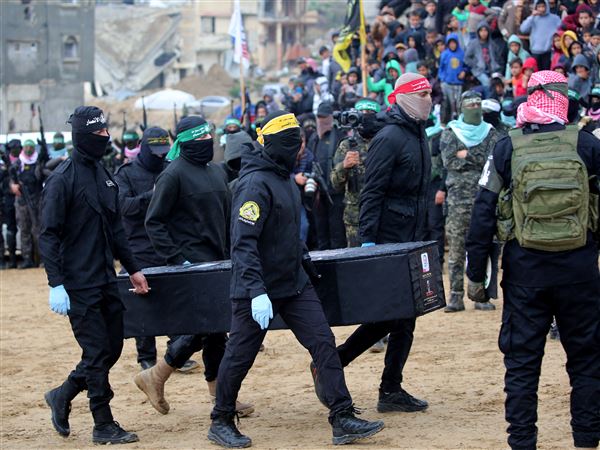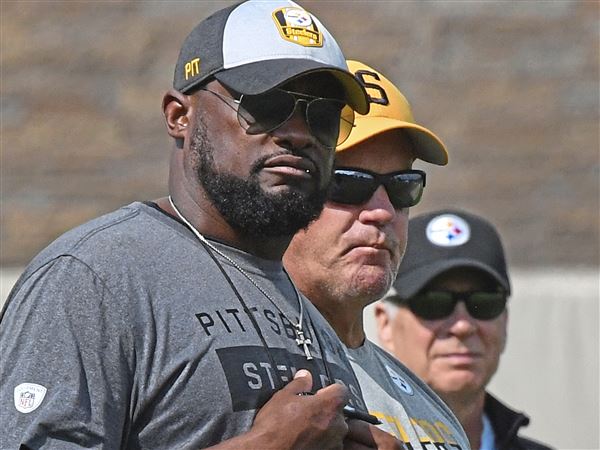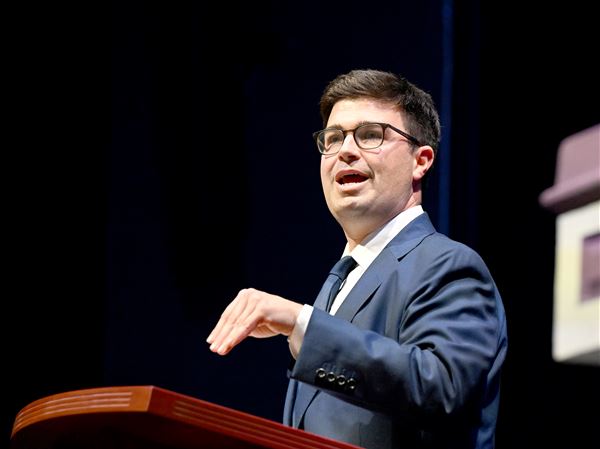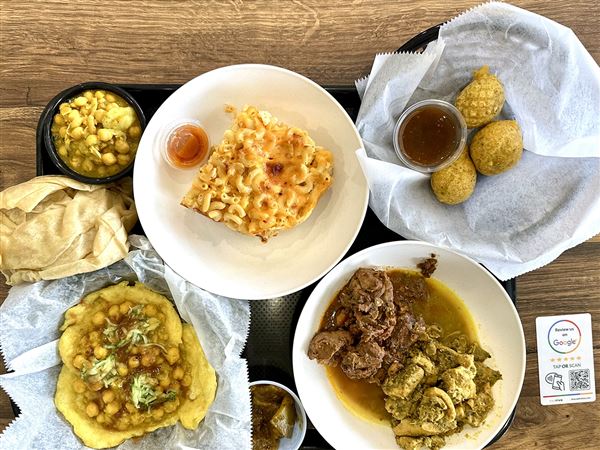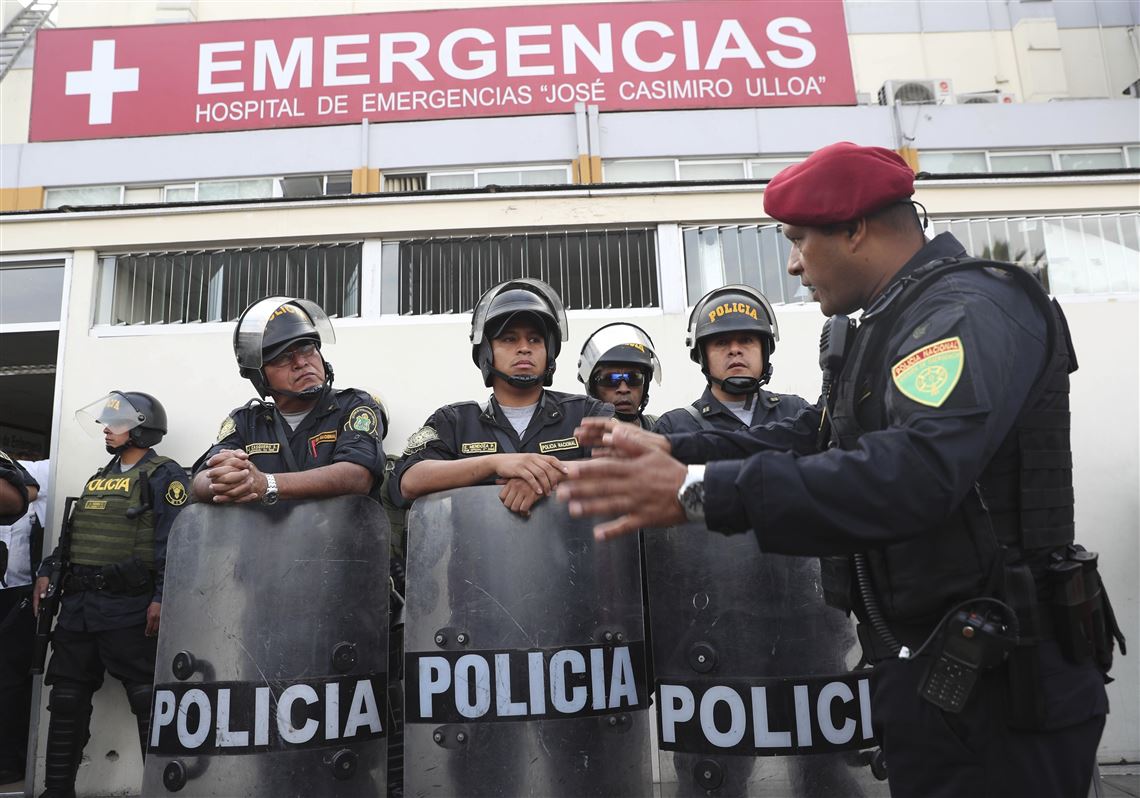LIMA, Peru — Former Peruvian President Alan Garcia shot himself in the head and died Wednesday as officers waited to arrest him in a massive graft probe that has put the country’s most prominent politicians behind bars and provoked a reckoning over corruption.
Authorities broke through a door at Mr. Garcia’s mansion in a leafy, upscale neighborhood of the Peruvian capital after hearing gunfire. The 69-year-old former head of state was rushed to a hospital, where a team of doctors performed emergency surgery but could not save him.
“The president, upset over this situation, knowing his absolute innocence ... had this terrible accident,” said his lawyer, Erasmo Reyna.
It was a shocking end for a man who twice ruled Peru — once in the 1980s and then again more than two decades later. In more recent years, he became ensnared in Latin America’s biggest corruption scandal, a sweeping investigation of politicians’ dealings with the Brazilian construction giant known as Odebrecht.
No country outside Brazil has gone as far in prosecuting politicians tied to Odebrecht, which admitted in a 2016 plea agreement that it paid nearly $800 million throughout Latin America in exchange for lucrative public-works contracts.
In Peru, politicians have described the accusations as a political witch hunt. Prosecutors and anti-corruption advocates insist the arrests show the South American nation is finally holding leaders accountable.
Several leaders called on Peruvians to set aside politics as the nation mourns the one-time populist firebrand whose second presidency helped usher in a commodities-led investment boom.
“It doesn’t matter your political hue, Peru is in mourning,” politician Gilbert Violeta wrote on Twitter. “This is a tragedy for our country.”
Condolences poured in from throughout Latin America as leaders recalled a man who at his peak was called the John F. Kennedy of Latin America.
“With virtues and imperfections, he realized great changes that allowed Peru’s economy to become one of the fastest-growing in Latin America and in the world,” former Mexican President Felipe Calderon said.
Mr. Garcia was born into a middle-class family in the capital, the child of a politician father whose party became Mr. Garcia’s own. He went on to a career marked by epic triumphs and devastating setbacks, a rollercoaster of a political life fueled by his charisma and capacity for reinvention.
Ultimately, though, the former president was an increasingly isolated figure. As investigators closed in, he argued that he was the victim of false testimony about taking bribes from Odebrecht during the construction of Lima’s metro. He had not been formally charged.
In December, Mr. Garcia sought asylum in Uruguay’s embassy, staying there for a little more than two weeks before his request was denied. Uruguayan President Tabaré Vázquez said there was no evidence to support Mr. Garcia’s contention he was being political targeted.
He vowed to cooperate with any investigation and defended himself up to the day before his death.
“I am not mentioned in any document and in any evidence,” he wrote Tuesday on Twitter. “They’re left to SPECULATE or invent intermediaries. I never sold out and it’s proven.”
When authorities arrived Wednesday at Mr. Garcia’s home, they met him on the staircase to the second floor. He asked for a moment to call his attorney, entered another room and closed the door behind him. Moments later, gunfire rang out. Police found him seated, bleeding profusely, Interior Minister Carlos Moran said.
Supporters who had gathered outside the hospital wept as word of his death spread. Some held each other in embrace. Others cried out. A line of officers in helmets and riot shields stood guard, keeping them at a distance.
His sudden death was sure to provoke reflection both over one of the most storied careers in Peruvian politics and the nation’s battle against corruption.
Tall and handsome, Mr. Garcia was first swept into office on a wave of optimism in 1985 as Latin America’s youngest president at age 36. He was hailed as “the president of hope.”
Fed by state spending, wage increases and price controls, Mr. Garcia’s policies initially created an artificial economic boom. But the state coffers were soon drained, credit dried up and investors fled. Labor strikes demanding wage increases in line with soaring inflation crippled production.
As Peru’s economy collapsed, Maoist Shining Path guerrillas surged.
At one point, Mr. Garcia was so depressed by his plunging popularity that he did not appear in public for more than a month and reportedly offered the presidency to his blind 88-year-old vice president, Luis Alberto Sanchez.
Mr. Garcia backed the candidacy of an independent political unknown, Alberto Fujimori, in the second-round runoff of the 1990 presidential elections to prevent a win by novelist Mario Vargas Llosa, a conservative rival.
Two years after leaving office, Mr. Garcia fled the country as Mr. Fujimori’s new government pursued corruption charges against him.
He was accused, among other things, of taking kickbacks for a Lima electric railway contract and of depositing Peru’s reserves in the notorious Bank of Credit and Commerce International, or BCCI, which was later shut down worldwide amid fraud allegations.
On the night of April 5, 1992, Mr. Fujimori dissolved Congress, suspended the Peruvian Constitution and sent troops to the home of Mr. Garcia, who had been warned of a plot to kill him.
“That was perhaps the first time I felt physical fear in my life, because I understood it was true there would be an attack and that we would die,” Mr. Garcia later recalled in an interview with The Associated Press.
“I had two pistols with nine rounds each,” he said, “and I shot all 18 bullets into the air as they were preparing to knock down the garage wall with a small tank and were coming over the walls.”
The soldiers briefly retreated, Mr. Garcia said, and he fled by climbing over a neighbor’s wall using a ladder. He was later smuggled out of the neighborhood in the trunk of a car and eventually made it to the Colombian Embassy, which granted him safe passage from Peru.
During his exile, he split time between Colombia, which gave him asylum, and Paris, where his wife and four children lived.
Mr. Garcia was reviled by most Peruvians, who initially tolerated, even lauded, Mr. Fujimori’s iron-fisted rule, grateful to him for taming the rebel insurgencies and cleaning up an economic disaster.
But in 2000, Mr. Fujimori’s autocratic government crumbled amid mushrooming corruption scandals, creating an opening for Mr. Garcia’s political comeback. The charges were eventually dropped for lack of evidence.
Mr. Garcia returned to his homeland in 2001 to seek re-election, casting himself as an elder statesman who had outgrown leftist ideas. He lost narrowly in a second round of voting to U.S.-trained economist Alejandro Toledo. Then he set his sights on the 2006 election.
He was widely viewed as the lesser of two evils when he defeated radical nationalist Ollanta Humala in a runoff. But he was determined to regain the trust of Peruvians, telling them, “I am more mature, and I would be an idiot if I were to commit the same mistakes.”
His popularity rose as he implemented austerity measures in a nation beset by poverty. He slashed his own salary by more than half and issued decrees forcing lawmakers to reduce their pay by nearly 40 percent.
He also gained praise by launching programs to bring potable water to poor shantytowns and pledged to build roads, schools and health clinics in rural areas.
In their mourning, fellow politicians acknowledged his faults while urging others not to forget his achievements.
“Few times have a seen a person with such clear intelligence,” Ecuadorian President Lenin Moreno said. “Without a doubt, we are going to miss him.”
First Published: April 17, 2019, 9:34 p.m.

